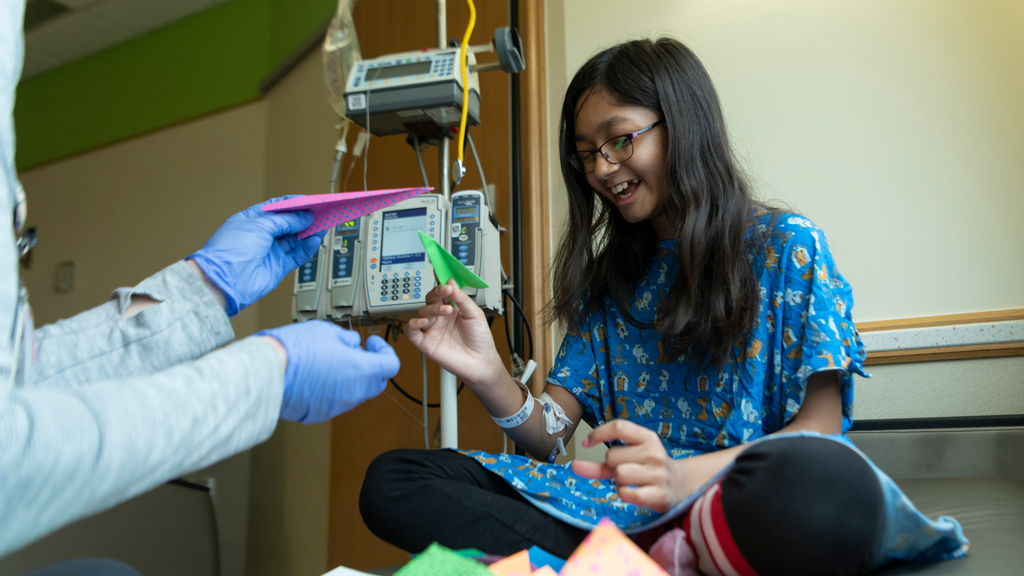
Infectious Diseases

Our Division of Infectious Diseases is the major referral center for infectious diseases in the Washington, D.C., area, helping thousands of patients each year, and actively promoting prevention through community outreach and education.
Our Providers
Our pediatric specialists provide personalized care for your child’s physical, mental and emotional health needs.
Contact Information
For appointments, please call 1-888-884-BEAR (2327) and for information, call 202-476-5051.
Choosing the Division of Infectious Diseases at Children's National Hospital
Infectious diseases include any disease or illness caused by germs, such as bacteria and viruses. While you can take steps to prevent disease and infection through proper hygiene and other practices, children are often at an increased risk for certain conditions while their immune systems are still developing and simply because of exposure – kids being kids.
Because diagnosis and care for an infectious disease can be complex, it is important for your child to see a pediatric specialist who can accurately diagnose and treat your child's condition. Children's National Hospital's comprehensive services include care for children with infectious diseases and epidemiological tracking that, for contagious conditions, helps limit the spread of infection and prevent further outbreaks:
- Bone and joint infections
- Fever of unknown origin
- HIV/AIDS
- Influenza
- Lyme disease
- Meningitis
- MRSA (methicillin-resistant staphylococcus aureus)
- Tuberculosis
Inpatient and outpatient consultations for the full range of infectious diseases in immunocompetent and immunocompromised children are provided 24 hours a day, seven days a week. Inpatient consultation is available for all hospitalized patients, including general ward patients, surgical, intensive care, solid organ and stem cell transplant patients. The Infectious Diseases Outpatient Clinic serves the needs for subspecialty referral form primary care providers throughout the Washington Metropolitan area, as well as internal referrals from Children’s National staff.
Conditions We Treat
Understanding your child's condition is an important step on your treatment journey. Learn more about causes, symptoms and diagnosis for a variety of conditions, as well as unique treatments and research being performed at Children's National.

Additional Contact Information
Information: 202-476-5051
Fax: 202-476-3850
Evenings and Weekends
Phone: 202-476-5000
Consultations are available 24 hours a day.

Locations
This is a carousel. Use Next and Previous buttons to navigate.

Family Resources
HIV Home Care
Read more about our home care advice for parents of children with HIV.








